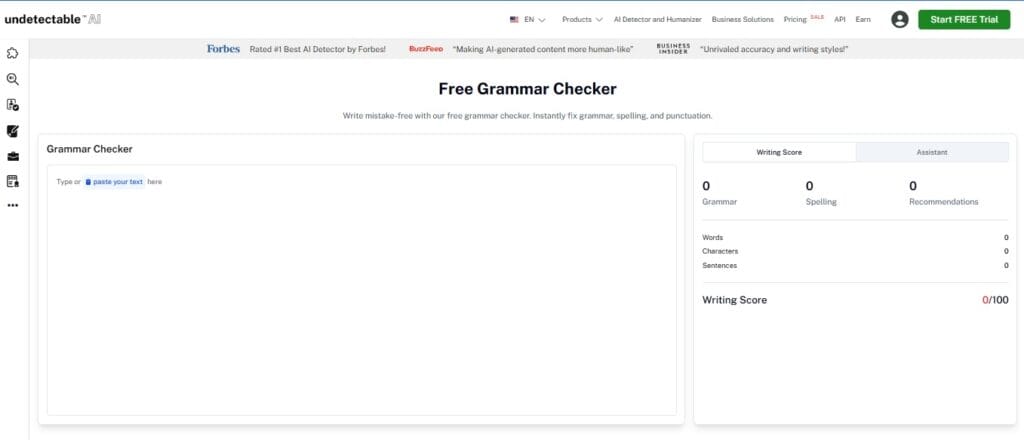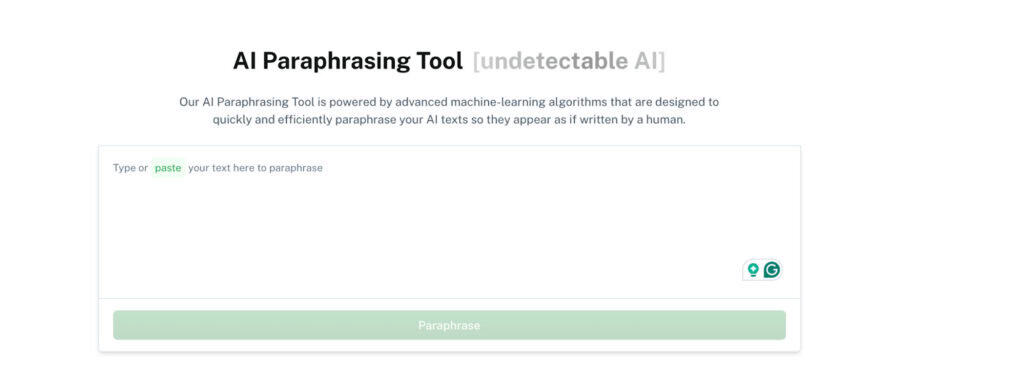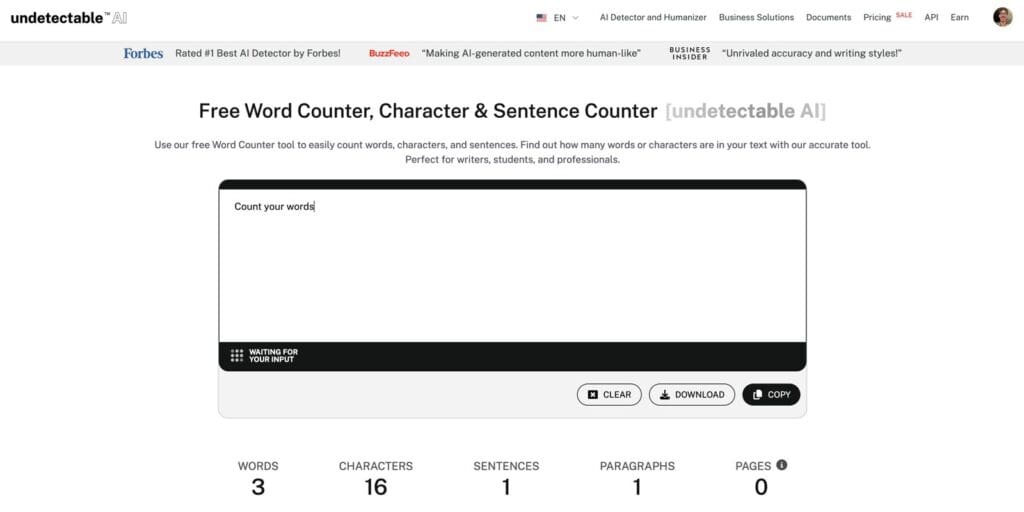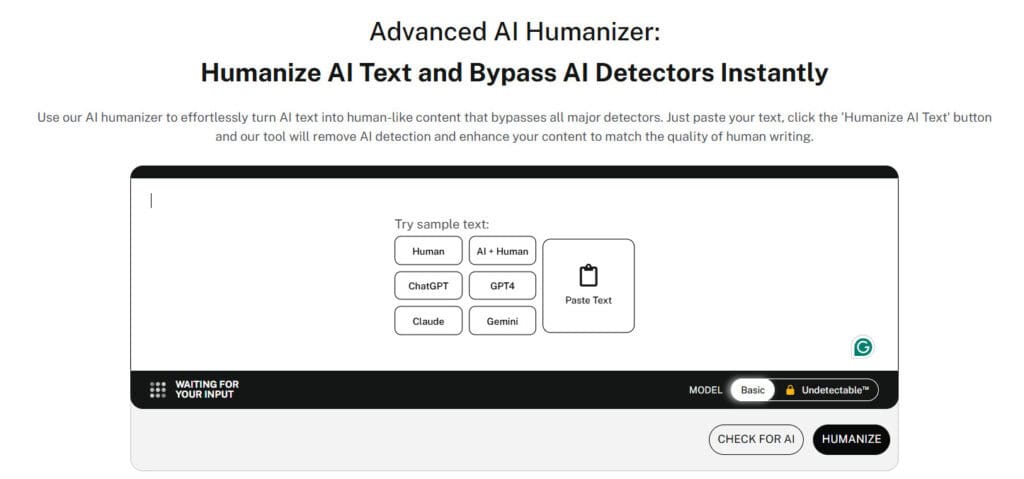Writing a self-reflection essay might seem like a walk in the park at first, but once you start, it can quickly feel more like walking through a jungle.
Really, it’s not as simple as it looks.
You might have a clear argument or set of ideas in your mind, but when it’s time to actually write them down, you might hit a mental roadblock.
Sound familiar? You’re not alone.
Many people struggle with putting their thoughts into words and organizing them effectively.
So, what should you do when that happens?
Don’t worry! This guide is here to help.
In the following sections, we’ll walk you through some useful tips, tricks, and examples to help you write your own self reflection essay easily.
What is a Self Reflection Essay?
People often confuse a reflective essay with other forms of academic writing.
While they both do, in fact, share some traits, a few things set a self-reflection essay apart.
Let’s take a look at them in detail to answer the question: what is a self reflection essay?


Never Worry About AI Detecting Your Texts Again. Undetectable AI Can Help You:
- Make your AI assisted writing appear human-like.
- Bypass all major AI detection tools with just one click.
- Use AI safely and confidently in school and work.
Definition and Purpose
A reflective essay is a personal type of writing where the author shares their thoughts, feelings, and experiences related to a specific topic.
The essay focuses on three main points:
- The significance of those experiences
- The lessons learned from them
- How those insights can be applied moving forward
In a self-reflection essay, the writer examines their own actions and reactions during a particular experience, which helps promote self-awareness and personal growth.
This type of writing encourages learning and helps the author better understand themselves and their responses to various situations.
Common Uses of Self-Reflection Essays
Reflective essays are often used in situations like college applications or cover letters, where the writer talks about their past experiences and shows how these moments have shaped who they are today.
For instance, someone might write about how their years of traveling due to their parents’ work abroad helped them see the world in a unique way and taught them to adapt to new environments quickly.
Reflective essays can also pop up in academic settings.
Maybe a student watches a documentary or explores an art gallery and then writes about how the themes of the film or exhibit made them think differently about a topic.
These types of essays can even show up in more personal contexts, like a blog post or a journal entry, where someone reflects on a recent life event or personal growth.
How to Write a Self-Reflection Essay: Step-By-Step
Working on an essay may feel daunting, especially if writing isn’t really your forte.
But once we teach you how to write a self reflection essay, the feeling will be different.
Step 1: Understand the Prompt
Sometimes, a reflective essay comes with a prompt, other times, not so much.
You are often given a topic if the essay is for an application or an assignment.
However, don’t be too surprised if you’re simply given a keyword or a broad phrase and asked to construct your essay.
Regardless, diving directly into the writing part is a mistake you don’t want to make.
It’s super important to fully understand what’s being asked of you.
Take your time to read the prompt carefully, and think about the main idea it’s trying to convey.
Are you reflecting on a specific event or experience?
Do you need to focus on your thoughts, emotions, or lessons learned from it?
Sometimes, the prompt might even ask you to tie in how your reflection connects to your future goals or current understanding of yourself.
The clearer you are about the prompt, the easier it will be to stay focused and provide a thoughtful, well-organized response.
Step 2: Choose a Relevant Experience or Topic
Imagine you’re given a prompt to write about how a failure or setback impacted your growth.
Suddenly, your mind is probably racing with all sorts of moments where things didn’t go as planned.
But hold on, you can’t write about every single one. You need to choose wisely.
Pick an experience that you can really discuss in detail.
One that gives you plenty to say and allows you to reflect deeply.
Make sure it’s a moment that taught you something meaningful.
You want to pick an experience that not only shows how you’ve grown but also contributes to making your essay stand out.
Step 3: Brainstorm Ideas

Brainstorming is a fun and helpful way to connect ideas and dig deeper into a central topic.
Think of it like creating a mind map.
For example, if your main word is “book,” you might branch off with words like fiction, nonfiction, digital, or hardcover.
Then, each of those words can lead to more specific ideas.
Before you know it, you’ve uncovered a bunch of ideas to explore.
When it comes to writing your essay, brainstorming works the same way.
It’s a great way to organize your thoughts and feelings about the experience you’re writing about.
Plus, it helps you uncover details and connections you might not have noticed before.
Step 4: Create a Thesis Statement
Your thesis statement says a lot about the rest of your essay, so create it carefully.
It should convey exactly what your essay is about.
Remember, there are 3Cs of writing the perfect thesis statement: clarity, conciseness, and coherence. Stick to them, and you’re golden!
Step 5: Outline the Structure
How to start a self reflection essay is a question that bugs every writer.
We’re here to tell you how you can overcome that blank page anxiety easily and quickly.
Before you start writing, create an outline of your essay’s structure.
Remember the main parts of a self reflection essay when you do this.
The introduction consists of the hook and the thesis statement.
Next, think about the essay’s body paragraphs that will cover your content in detail.
Finally, include a conclusion to tie up all the loose ends and provide a satisfactory heading.
Make sure to include bullet points for what you’ll be talking about in each of these sections.
Step 6: Write the First Draft
It’s finally time to accomplish the main task: the writing.
If you have done your homework and completed all the steps mentioned above, it shouldn’t look much daunting now.
Start by pulling out the outline you’ve created and begin expanding on each point.
Don’t overthink things like grammar, flow, or perfect sentence structure just yet.
The key here is to let your thoughts spill onto the page.
Write freely and let your ideas take shape. You will refine it later!
Step 7: Edit and Revise

Now that you are done with the writing, take another look at it to spot any errors or blunders.
At this stage, you should look for any spelling mistakes, grammatical errors, and problems in the flow or coherence of the text.
You can either do so manually or with the help of an Paraphrasing tool to refine your sentences.
In fact, that’s how we suggest going about it because editing your own content can feel tiresome and boring.
And frankly speaking, if you’re writing a long essay, you might not be able to catch all the mistakes.
Step 8: Final Proofreading
Before you hit that submit button, we strongly advise you to give your self-reflection essay another read.
You’d be surprised at the number of errors you may spot during the final proofreading.
You could do it yourself after a short break or ask an expert to review it for you.

When you’re translating deep personal thoughts onto the page, it’s easy for your syntax to become as complex as your emotions.
You can use our Grammar Checker to help you express your thoughts more clearly in a self-reflection essay without losing your personal voice.
This ensures that your insights are delivered with professional precision while protecting the unique, human-centric tone that makes your reflection genuine and impactful.
Tips for Writing a Self-Reflection Essay

Let us share some of our top tips for writing self reflection essays.
These tips and tricks can work wonders at improving the quality of your writing.
Choose a Tone
Decide on the tone you want to go with before you start writing.
Do you want the essay to feel more personal?
If so, it’s best to use pronouns like ‘me’ and ‘I’ to make yourself connect with the reader.
Stick to the Suggested Length
While being comprehensive is a great idea, don’t go overboard.
Make sure you follow the guidelines and keep your essay within the suggested length.
Stay Relevant
It’s easy to sway away from the main topic when you’re writing long-form content, but don’t do that.
Stay focused on the main topic of your essay and structure your writing around that.
Be Concise and Clear
You don’t want to use fancy vocabulary just for the sake of impressing the reader.
Instead, use a clear and concise approach to get your point across in the most effective manner.
Tools to Help Write a Self-Reflection Essay
The good thing about technological advancements is that help is always just a few clicks away.
While you can try out many tools out there, Undetectable AI offers an all-in-one solution:
AI Essay Writer

Our AI Essay Writer takes all the work off your plate.
It takes out all the guesswork and presents you with an essay on your desired topic.
All you need to do is tweak it a bit to add a personal touch, and you’re good to go!
Paraphrasing tool

Sometimes, no matter how hard you try, a sentence just doesn’t feel right.
That’s where our Paraphraser could lend you a helping hand.
You could also use it to rewrite text you pick from other sources.
Word Counter

With our word counter, you can easily keep track of your essay’s length.
It will tell you the number of words, characters, sentences, and more to ensure you don’t exceed or fall under the required text length.
Humanizer

Even though AI tools are here for our assistance, some people have yet to come around to the idea of it.
Besides, AI-generated text can also feel robotic and monotonous at times.

Another tool is our AI Conclusion Generator that can offer the clarity you need.
It helps summarize your key insights while giving your essay a cohesive, introspective finish that echoes your growth and learning.
Whether you’re writing about a turning point, a quiet realization, or a moment of change — this tool makes sure your final paragraph says what really matters.
So, you can humanize your sentences with the AI Humanizer.
Try our AI Detector and Humanizer right in the widget below!
Examples of Self-Reflection Essay Topics
As we previously mentioned, it’s easy to confuse a self-reflection essay with other forms of academic writing.
So, how can you really tell apart a self reflection essay when you see one?
Well, this section for self reflection essay example can aid your understanding further.
Academic Topics
- Discuss the contributions of a historical figure in changing the course of history.
- A time when you doubted your academic abilities but proved yourself wrong.
- How did participating in extracurricular activities influence your academic performance and character?
Professional Topics
- The first time you led a project and what you learned about leadership.
- Discuss a time you had to work with a difficult colleague and what it taught you about teamwork.
- A moment when you realized you needed to change your career path and how you handled it.
Personal Topics
- An experience where you learned the value of forgiveness or letting go.
- The impact of a mentor or role model on your personal journey.
- A life-changing decision you made and the personal growth it brought.
Frequently Asked Questions
How to start a self reflection essay?
Self-reflection essays are meant to be highly personal. After all, the whole point of writing is to explore your feelings, thoughts, and emotions.
However, it’s important to maintain a balance between sharing personal ideas and a sense of professionalism.
What is the purpose of a self-reflection essay?
Self-reflection essays are meant to be highly personal. After all, the whole point of writing is to explore your feelings, thoughts, and emotions.
However, it’s important to maintain a balance between sharing personal ideas and a sense of professionalism.
How do I choose a topic for a self-reflection essay?
When choosing a topic for a self-reflection essay, think about your interests, experiences, and the audience.
Choose a topic that allows you to present yourself in the best light and will resonate with your readers.
How personal should a self-reflection essay be?
Self-reflection essays are meant to be highly personal. After all, the whole point of writing is to explore your feelings, thoughts, and emotions.
However, it’s important to maintain a balance between sharing personal ideas and a sense of professionalism.
Conclusion
It’s common to feel lost in the process if you don’t know how to write a self reflection essay.
However, now that you have this guide at your disposal, we believe you’ll encounter little to no problems while working on your essay.
Yet, if you hit a wall at any point, you can always count on the various tools available at Undectable AI to help you out.
Feel free to sign up today so you always deliver impeccable writing!
